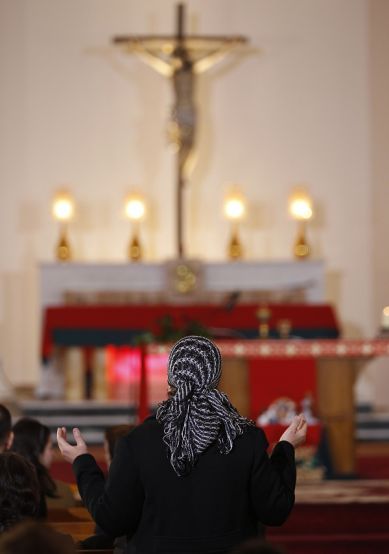Iraq opens first Christian cultural center since 2003 invasion

Iraq authorities on Sunday opened the first Christian cultural center since the 2003 invasion and ousting of Saddam Hussein.
The center, which will host conferences and interfaith meetings between Christians and Muslim, was inaugurated Sunday in the northern city of Kirkuk, reported Agency France-Presse. Officials said construction of the center cost around $300,000.
It is located next door to the city's Chaldean Catholic Church, which was considered one of the first new churches in Iraq since the United States invasion that ousted Saddam Hussein.
"This centre is the first of its kind in Iraq since 2003, it sends a message of peace, and promotes the language of dialogue," said Louis Sakho, Chaldean archbishop of Kirkuk, according to AFP.
Sakho described the communities of Kirkuk, which consist of Arabs, Kurds, and Turkman, as "one family."
Before the Iraq War, as many as 1.2 million Christians were estimated to have lived in Iraq, considered the birthplace of the religion. But persecution and violent attacks from Al Qaeda forced many to flee to neighboring countries, leaving only 450,000 Christians left in Iraq.
The worst attack took place in October 2010 when Al Qaeda militants stormed a Syric Catholic church in Baghdad and massacred 44 worshippers, two priests and seven Iraqi security force officers.
While the Iraqi Constitution guarantees the freedom of religion, Christian leaders have pointed out the gap that exists between rhetoric and reality.
Last fall, Sakho sent a letter to the Catholic charity Aid to the Church in Need expressing his concern that Christian exodus of the region shows now sign of stopping.
"The rise of political Islam is a matter of worry. We Christians are a minority and there is no prospect of us gaining equal citizenship in the concrete reality of day-to-day life and there is no vision of a better future," said Sakho in the September 2012 letter.
"Everyone is speaking of democracy and freedom, but the reality on the ground is different," the archbishop added.
"The sectarianism is gaining ground and the majority are not taking care of minority groups. I think there are real fears of more Christians leaving."